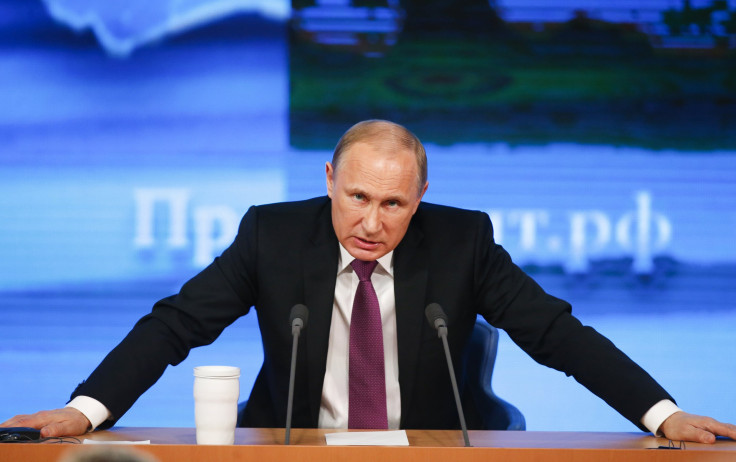As Russia's Economy Sinks, Vladimir Putin Must Choose Between The Military And Social Spending In 2015

The nexus of falling oil prices and a destabilized Russian economy has placed the former Soviet state in a financial tailspin as it enters 2015. Add the increased international tension arising from its annexation of Crimea and the conflict in East Ukraine, and it's clear Russia is heading into a tumultuous year that will raise questions about whether the nation can sustain its current military posture across Europe.
“I think the desire is there to continue with the heavy military presence, but the question is, do the economics allow it?” said Steven Pifer, U.S. ambassador to Ukraine from 1998 to 2000, during a phone interview. “It will then reach a point where President Putin needs to make some fundamental choices about guns versus butter.”
This plethora of problems places Russia in a quandary. The budget unveiled in September was highly optimistic -- planning for inflation of around 6 percent, GDP growth of 1.3 percent and global oil prices to hit $100 a barrel -- according to a report in the Economist.
Since those predictions, the price of oil per barrel has dropped down to around $55, the World Bank has predicted Russia's economy will grow by only 0.8 percent, and inflation will hit between 12 percent and 15 percent, according to former finance minister Alexei Kudrin.
And while Pifer says Russia’s military decline can already be seen as plans to modernize its nuclear and conventional forces are pushed back from 2020 to an unknown date, Putin’s presentation of the country’s new military doctrine suggests little will change in terms of the Cold War-like tactics employed in 2014.
Russia continues to cite NATO as its biggest threat and addressed Ukraine’s pivot west as an “unfriendly” move. All in all, Putin makes it clear that little will be changing in the coming year.
But Putin’s optimism doesn’t appear to fit with the dire reality of what awaits a Russia that will almost certainly face recession in 2015, experts say. According to the Economist, every $1 cut from the price of a barrel of oil equates to around $2.3 billion in budget revenue. For example, in September, when Russia presented its budget, oil was around $90 a barrel. Today that same barrel is worth around $55, meaning Russian loses $91 billion from its budget per year, which is nearly a quarter of the country’s budget of around $389 billion.
While Putin says he will protect social services, history shows it will be exactly those services that likely make will way for military spending. “Given how significant the economic problems are in Russia, there will be real difficulties in maintaining the military spending that Russia has adopted,” said Sarah Lain, a research fellow and expert on Russia at the London-based think tank Royal United Services Institute. “It is not uncommon for Russian social services, such as health care and education, to suffer to the benefit of the defense budget, but it will be much more difficult to justify when Russia itself can't deal with its economic problems domestically and the economic stress is visible to the Russian population.”
However, the economic spillover from the Ukraine crisis also has placed Russia in a difficult position. On the one hand, Putin standing up for Russians living in the East has brought him much admiration and support from Russians. On the other, it’s the epicenter for much of the country’s economic woes, which has brought him scorn from across his suffering population.
“For the foreseeable future, Crimea is going to be a net cost for the Russians,” said Pifer. “Because if you look at Crimea, about a quarter of the population is not economically active, they are retirees. A quarter of the economy of Crimea stems from tourism that came from Ukrainians that are not coming back. Crimea has big economic problems it needs to deal with.”
On top of that, says Pifer, Russia also is dealing with the pensions issue of those living in East Ukraine's pro-Russian-occupied territory. Kiev has stopped paying pensions to people in that region because pro-Russian rebels are taking a 40 percent cut, helping fund their war effort. Citizens have been advised to make it to Ukrainian-occupied territory, where they will be paid in cash. For those who don’t want to or can’t make that journey, Russia has been expected to stand in. So far, however, it has refused.
© Copyright IBTimes 2024. All rights reserved.












